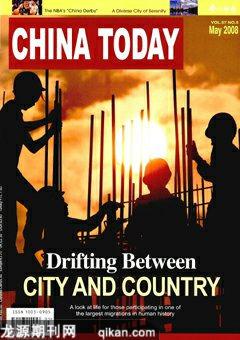Tastes Like Charity
LANCE MAUGHAN
MIXING business with pleasure is not unusual in China, where contracts are routinely finessed over banquet tables. Taking the idea a step further, a group of local and expatriate professionals have been perfecting mixing charity with dinner over Saturday nights in Beijings restaurants.
A loose weekly gathering since mid-2007, the Beijing Charity Dinners Club mixes curiosity about Chinese cuisine with friendship and philanthropy. Diners mix talk of rural poverty and migrant workers with office gossip and holiday tips.
The club was born to mix socializing with social causes, over quality but affordable variations of Chinese cuisine. “Its about catching up and meeting friends, trying good local restaurants and helping good causes while were at it,” says Lukas Birk, creative director at a Beijing-based, Austrian-owned photography and design company. Birk, one of the clubs co-founders, says the weekly gatherings give foreigners a chance to mix with “interesting local and foreign people.”

Chinas economic revival has drawn talent from across the globe. A new wave of concept bars, spa resorts and designer-made restaurants has created plenty of luxury escapism for local high rollers. The Beijing Charity Dinners Club, however, prefers affordable venues to encourage “people from all economic backgrounds to come along,” says Vivienne Peng, executive assistant at the Beijing office of a French bank.
On a recent Saturday night the charity diners chose to eat at Yang Chun Xiao Guan, a knock-about Shanghai restaurant on Jiaodaokou East Street in Beijings old quarter. Two dozen diners around a large round table placed donations in an envelope, along with their RMB 34-a-head bill, toward the end of a dinner that pushed on for a merry three hours.
The eatery, in the gray-brick Dongcheng District, was chosen for its authenticity and price. “We go for great authentic food at a price that fits whatever wage youre on. Many local people are put off by the perception of high prices,” says public relations executive Wang Tzyy Pyng, who along with Peng selects restaurants with a trial dinner weeks in advance. “We are guided by price and authenticity.”
Beijing has an astounding range of restaurants, from US $100-a-head silver service venues to US $2 bamboo steamers of dumplings. Beijing Charity Dinners Club has been eating its way through the diversity of Chinas cuisine, from spicy Sichuan hotpots to subtle and sweet fare from southeastern Hangzhou, to thick “lagman” noodles sopped up with nang bread in the style favored by the Uygur minority of Chinas far west.
Dinners are also intended to be educational. Donations from the Yang Chun Xiao Guan dine-athon went toward a center educating the children of migrant workers in a fast growing Beijing suburb. Picking up the donation, Jonathan Husher, founder of Compassion for Migrant Children (CMC), explained his organizations history and mission and took 20 minutes of questions. Computers, stationery and skills have all been donated to a grateful CMC, which offers computers and classes in English to the disadvantaged children, as well as childcare courses for mothers. Cash collected at the dinner will go toward building a new community center to help migrant children in the southwestern suburb of Fengtai. “They also need volunteer teachers, and weve been coming up with a timetable so groups of us go out every weekend,” explains Wang.
One of the clubs largest hauls, a RMB 11,000 donation, came from two birthday dinner parties, with the money going to the China Reading Project. “The donations were from local Chinese friends as much as they were from foreigners,” explains Patricia Cadena, an Ecuadorian heiress studying for a Masters in Chinese culture. “We had enough books to create libraries in two rural schools in impoverished parts of China.”
During a recent evening of food and chat, diners listened to Xiao Wei, a charity worker for the China Youth League. A December cash and goods collection for schools in Guizhou and Qinghai was “hugely appreciated,” explained Xiao. She passed around photographs of red-faced children chasing after white pickups which pulled into a dusty schoolyard to unload bales of blankets and clothes. Tin dishware and shoes were also sent from Beijing, with freight costs sponsored by a Spanish-owned logistics company, Boxinves.
The collections have extended beyond cash. A St. Patricks Day party turned into a carnival atmosphere at the Kultur Kafe in Beijings business district. Donors arriving with suitcases of clothes, blankets and stationery were served complimentary Irish coffee. “Word got out that we could make good coffee and suddenly we had a bunch of people wanting to buy,” recalls Birk. “We were selling Irish coffees for RMB 100, which gave us a windfall of unexpected cash to buy blankets.”
As China battles a widening income gap between rural poor and urban elites, theres plenty of room for local charity efforts. The Beijing Charity Dinners Club welcomes others to get involved. “We need more help in suggesting restaurants and charities for these dinners,” explains Peng. “Also, please bring friends!”

